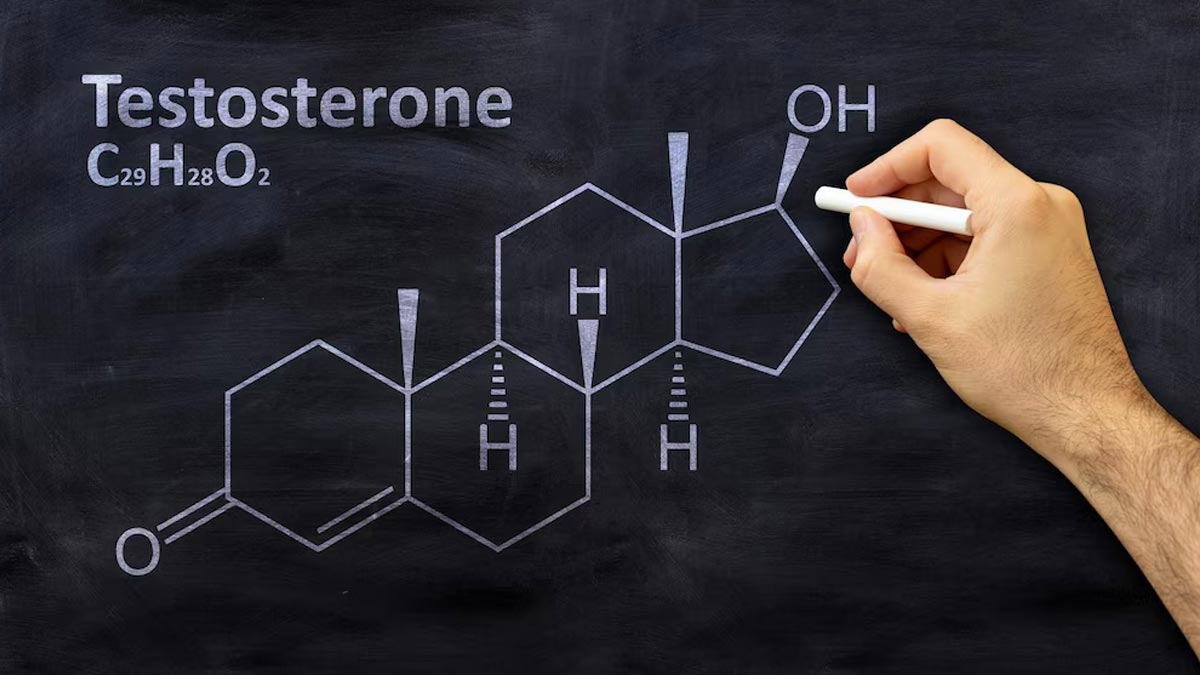
As men age, they often notice changes in their energy levels, mood, and overall health. These shifts aren't just random—they're closely tied to the gradual decline in testosterone, a vital hormone that plays a key role in everything from muscle strength to sexual health. You might feel more fatigued, struggle with maintaining muscle mass, or notice changes in your sex drive. It can be confusing and frustrating, but understanding how testosterone affects your body as you age is the first step in taking control of your health. We spoke to our expert Dr Adittya K Sharma, Senior Director and Head, Urology, Andrology, Kidney Transplant, and Robotic Uro-Oncology, Max Super Specialty Hospital, Gomti Nagar, Lucknow, who shared insights on this topic.
Table of Content:-
Understanding Testosterone Decline

“It is normal for testosterone levels to peak during adolescence and early adulthood. After the age of 30, levels begin to decrease by about 1-2% per year. This decline is a normal part of ageing, but it can vary widely between individuals. Some men may experience more pronounced symptoms, while others may notice little to no change,” said Dr Sharma.
Also Read: Even Men Have Mood Swings, Here's What Expert Has To Say About Irritable Male Syndrome
Symptoms of Low Testosterone
As testosterone levels drop, men may experience a range of symptoms, including:

- Reduced Muscle Mass and Strength: Testosterone is vital for muscle growth and maintenance. A low level can cause a decrease in strength and muscle mass, which makes staying physically active difficult.
- Increased Body Fat: A decline in testosterone can increase body fat, particularly in the abdominal area. This shift in body composition is often accompanied by a reduction in muscle mass.
- Decreased Bone Density: Testosterone plays an important role in maintaining bone density. Low levels can lead to thinning bones (osteoporosis), increasing the risk of fractures.
- Low Libido and Sexual Dysfunction: Reduced testosterone levels are closely linked to a decrease in libido and erectile dysfunction. Men may find that they have less interest in sex and may experience difficulty achieving or maintaining an erection.
- Mood Changes and Fatigue: Low testosterone can contribute to mood swings, irritability, and fatigue. Some men may also experience symptoms of depression or a general lack of motivation.
Also Read: Suffering From Weak Bones? Expert Suggests Low Testosterone Levels Could Be The Reason
Managing Low Testosterone
“If you are experiencing symptoms of low testosterone, it's important to consult with a healthcare provider for an accurate diagnosis. Blood tests can measure testosterone levels and determine whether they are lower than the normal range for your age,” said Dr Sharma.
According to the StatPearls, a decline in testosterone production can result from ageing, specific medications, chemotherapy, disorders of the hypothalamus-pituitary axis, primary hypogonadism, conditions like cryptorchidism and orchitis, as well as genetic disorders, such as Klinefelter and Kallmann syndrome.
Treatment Options
Here are some expert-recommended treatment options that you should try:

- Lifestyle Modifications: Regular exercise, a healthy diet, adequate sleep, and stress management can help mitigate some of the effects of low testosterone. Strength training, in particular, can help maintain muscle mass and boost energy levels.
- Testosterone Replacement Therapy (TRT): For some men, TRT can be an effective treatment option. This therapy involves supplementing the body with synthetic testosterone through injections, patches, gels, or implants. TRT can alleviate many symptoms of low testosterone, but it is not without risks and should be considered carefully in consultation with a healthcare provider.
- Monitoring and Regular Check-Ups: Men undergoing TRT should be regularly monitored for side effects, such as an increased risk of cardiovascular issues, prostate problems, and changes in red blood cell count.
Bottomline
Dr Sharma concluded, “As men age, the natural decline in testosterone can affect various aspects of health, from physical strength to sexual function and mood. By understanding these changes and seeking appropriate medical guidance, men can manage the symptoms of low testosterone and maintain their quality of life as they age. Regular check-ups and open communication with a healthcare provider are key to navigating these hormonal changes effectively.”
[Disclaimer: This article contains information provided by an expert and is for informational purposes only. Hence, we advise you to consult your own professional if you are dealing with any health issues to avoid complications.]
Also watch this video
How we keep this article up to date:
We work with experts and keep a close eye on the latest in health and wellness. Whenever there is a new research or helpful information, we update our articles with accurate and useful advice.
Current Version